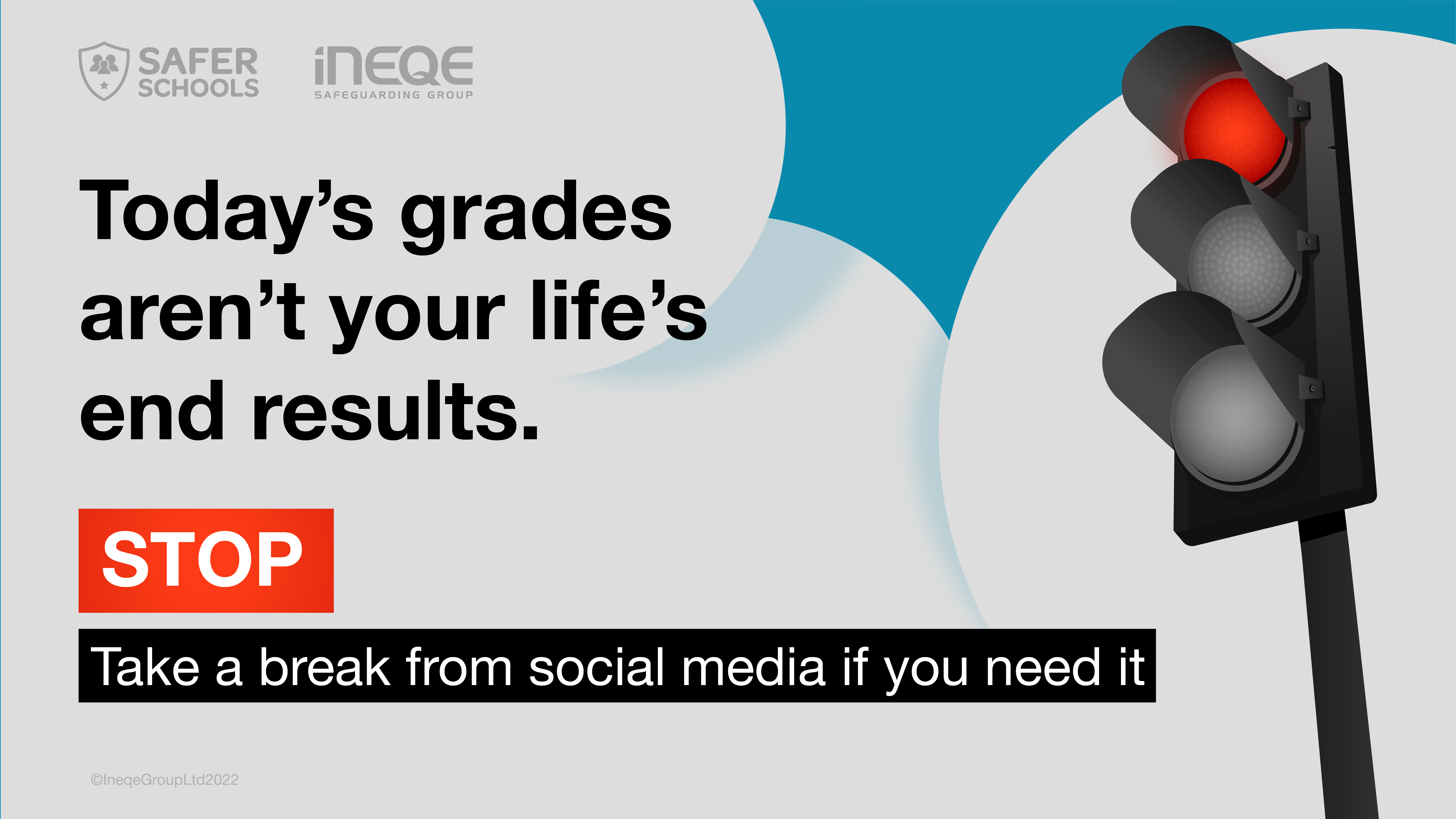Reading Time: 8.5 mins
Published: August 13, 2025
A lot can hinge on exam results for some young people – plans for further education, ambitions for dream careers and hopes to stay with friends in academia.
There’s also the often unspoken pressure of meeting expectations, whether that’s within the family unit, a friendship group or, for today’s digital generation, the social media space and online world.
To help the young people in your care navigate through the emotional process surrounding exam results day, we’ve created a timeline of advice for your reference.

– Source: Place2Be and YouGov (2024)
– Source: NSPCC and Teacher Tapp (2024)

The Week Before Exam Results Day
Talk and Listen
While waiting for exam results, a young person will likely be going through a range of emotions and – without a conversational outlet – bottling them up. Encourage open conversation in which they can express these emotions. Openly talking about hopes and fears, acknowledging feelings of worry, failure, disappointment and related pressures will help. This will help to build resilience, reaffirm trust and foster confidence about the future for your young person.
Remember, some young people might prefer to communicate by other means, such as through writing or art. Don’t discount these methods as not being communicative! If the young person in your care feels more confident expressing themselves in this way, make sure to create opportunities that enable this, like going to a café or the cinema together.
Plan Distractions
Although we strongly encourage keeping the conversation open, try to occasionally take their mind off the incoming results with some fun things to do. Time can move very slowly while you’re waiting for something!
Plan a day out or two, a movie night, or arrange an outdoor activity to ensure they are not dwelling on the exam results day ahead. You may even find that, due to being in a different environment, the young person in your care ‘opens up’ and initiates a conversation about how they’re feeling. Although you have planned the activity as a distraction, don’t discourage them or shut the conversation down – allow them to use this opportunity to share their thoughts and feelings.

The Day Before Exam Results Day
Be Present
Even if you can’t be physically present all the time, ensure the young person knows you’re available if they need you. If you’re working but have access to your phone at certain times, let them know when your breaks are and that you’ll keep your phone on you during these times, so if they want to text or ring you, they can. If you can’t access your phone, let them know what time you’ll be home or suggest another trusted adult who they could talk to.
Offer an Alternative Activity
Ask if the young person in your care would like to do anything in particular on the day or evening before exam results. Come up with a list of suggestions you think they’d like – they may be too distracted and stressed to think of things on their own. Here are some examples of activities you could do:
Every young person will be different in how they handle exam results stress, so don’t be too worried if the young person in your care declines any offer of activities. They may just deal with stress better by not making a fuss about it, sitting quietly watching YouTube or passing time playing their favourite game online with friends. Let them take the lead.

Exam Results Day
Stay Cool, Calm and Collected
You may feel like you’re just as nervous as the young person in your care but try not to show it! Try taking some deep breaths before seeing them in the morning – they might be looking to you for emotional reassurance, even subconsciously.
React Mindfully
Remember, your words matter. At times like these, the reactions of a parent or carer can be a huge deal to a young person. Your words will carry a heavy weight and the young person in your care may be dreading the thought of telling you what their results are.
Discuss Social Media
Remind the young person in your care that, despite how it may seem to them when looking on social media, many people will have mixed emotions about their grades. They aren’t alone if they are feeling disappointed and disheartened with their results, despite how it may appear online!
Encourage the young person to take a break from checking their social media feeds.
Suggest Celebrating, No Matter the Results
Even if the results weren’t what everyone was hoping for, consider planning an event or activity to acknowledge the hard work and effort put in across the school year. It could be something lowkey, like a family dinner. If the young person seems like they don’t want to talk about it or would prefer not to make a fuss, maybe a trip to the cinema or a walk would be more appropriate.

The Days and Weeks After Exam Results Day
Keep Talking and Listening
Keep encouraging open dialogue by being as present as possible, asking open questions and giving plenty of time to listen.
If the results weren’t what the young person wanted, emphasise during conversation that this is not the be-all-end-all for their future. Plenty of people go on to have great careers and happy lives without having achieved academic success at school.
Discuss Options
If exam results day didn’t bring the results they were hoping for, ask the young person in your care if they’d like to discuss other options and next steps. For example, if they need to repeat exams or an assessment, how would they go about that? Or is there an alternative path they would like to consider?
If they don’t want to talk about it at the time, reassure them that you’ll be there to talk about it when they’re ready. Remember, they might not actually know what they want to do, so you can also offer to research ideas with them. Ask their school if there’s a career advisor available to speak to.

Join our Online Safeguarding Hub Newsletter Network
Members of our network receive weekly updates on the trends, risks and threats to children and young people online.









